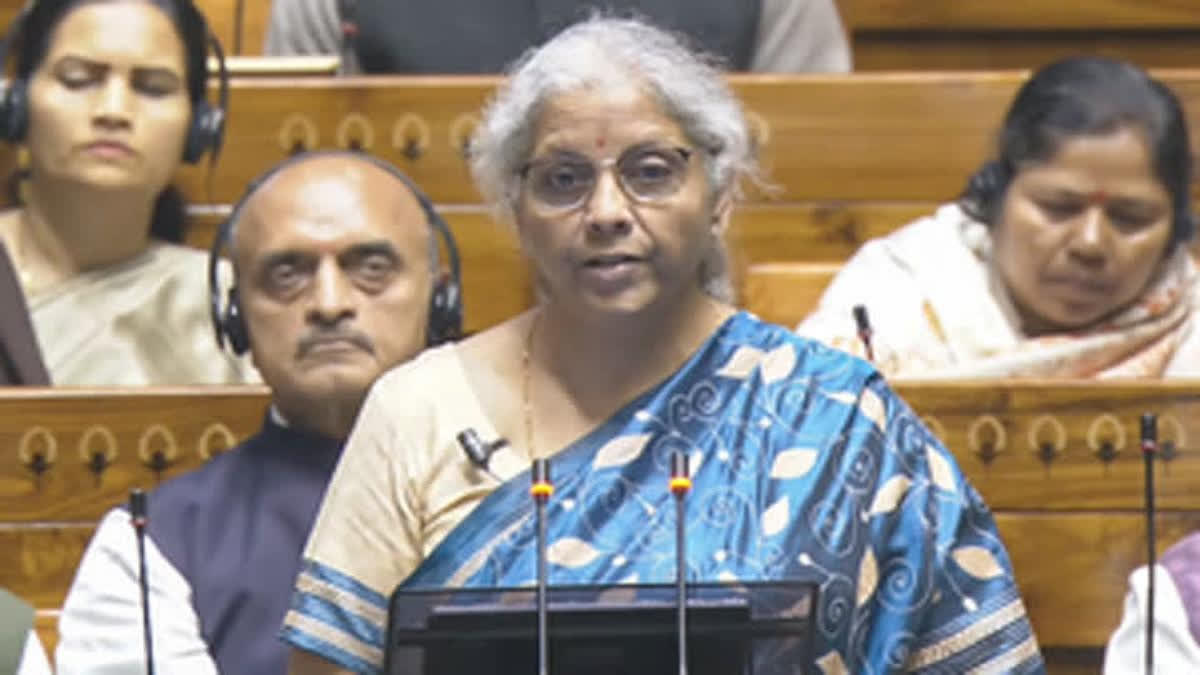New Delhi: As expected and in relief for the citizens, the central government neither tweaked nor put any additional tax burden on citizens, in the interim Budget for 2024-25 tabled by Union Finance Minister Nirmala Sitharaman. "Keeping with the convention, I do not propose to make any changes relating to taxation and propose to retain the same tax rates for direct taxes and indirect taxes including import duties," Sitharaman said in her Budget speech on Thursday.
However, certain tax benefits to start-ups and investments made by sovereign wealth or pension funds as well as tax exemption on certain income of some IFSC units are expiring in March 2024. To provide continuity in taxation, she proposed to extend the date by another year. Moreover, in line with the government's vision to improve ease of living and ease of doing business, she announced to improve tax-payer services.
"There are a large number of petty, non-verified, non-reconciled or disputed direct tax demands, many of them dating as far back as the year 1962, which continue to remain on the books, causing anxiety to honest tax-payers and hindering refunds of subsequent years," she said.
She proposed to withdraw such outstanding direct tax demands up to Rs 25,000 for the period up to financial year 2009-10 and up to Rs 10,000 for financial years 2010-11 to 2014-15. "This is expected to benefit about a crore tax-payers," she added. Presenting the Union Budget 2023, Sitharaman on Thursday pegged the fiscal deficit target for 2024-25 at 5.1 per cent of gross domestic product (GDP).
In 2023-24, the government pegged the fiscal deficit target for 2023-24 at 5.9 per cent of gross domestic product (GDP). Today, Sitharaman said that the fiscal deficit of 2023-24 was downwardly revised to 5.8 per cent. The difference between total revenue and total expenditure of the government is termed as fiscal deficit. It is an indication of the total borrowings that may be needed by the government.
